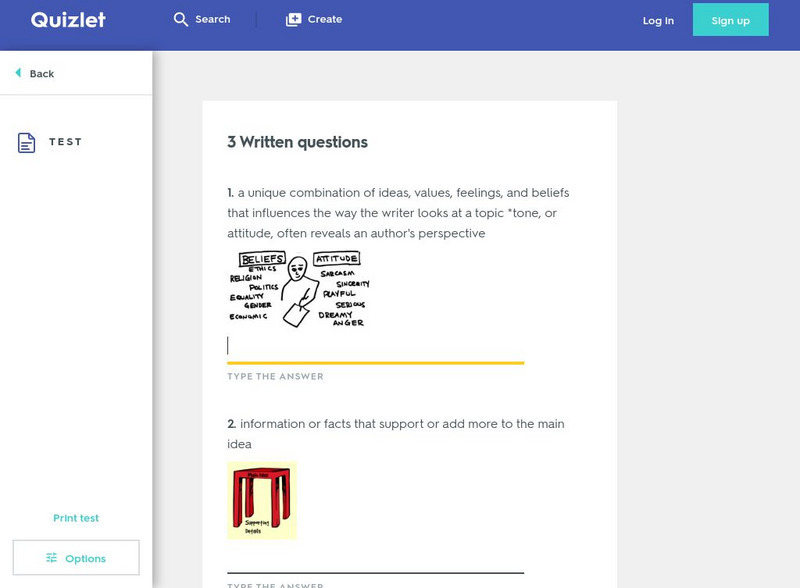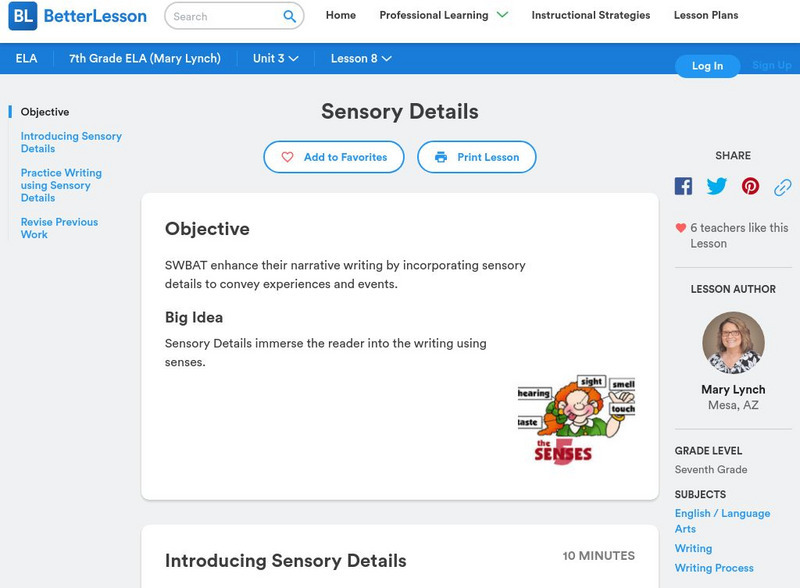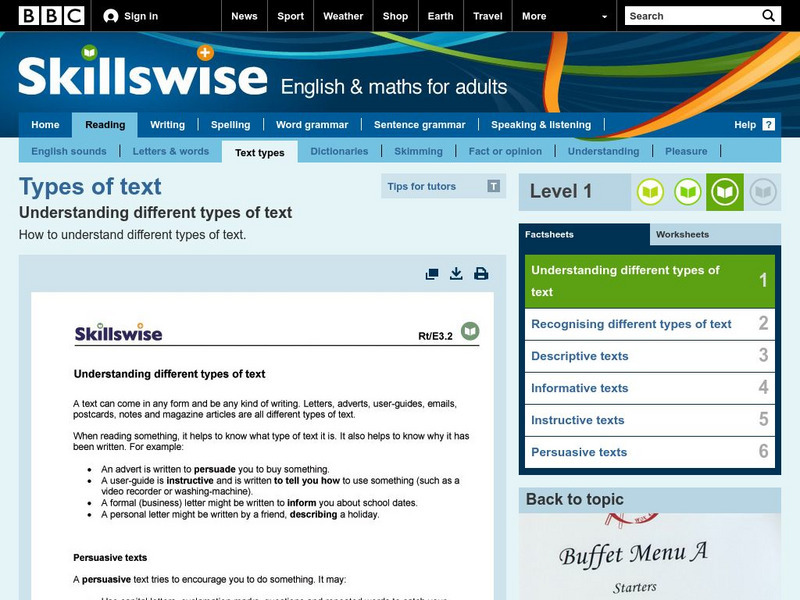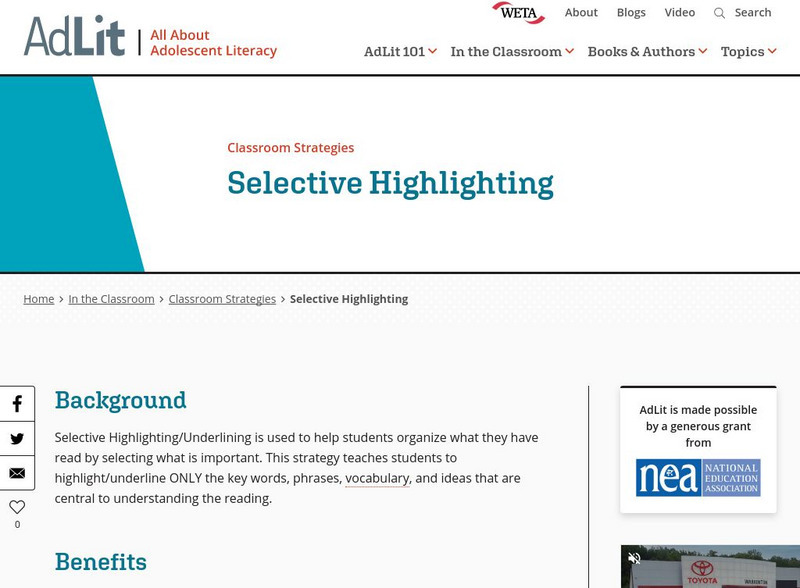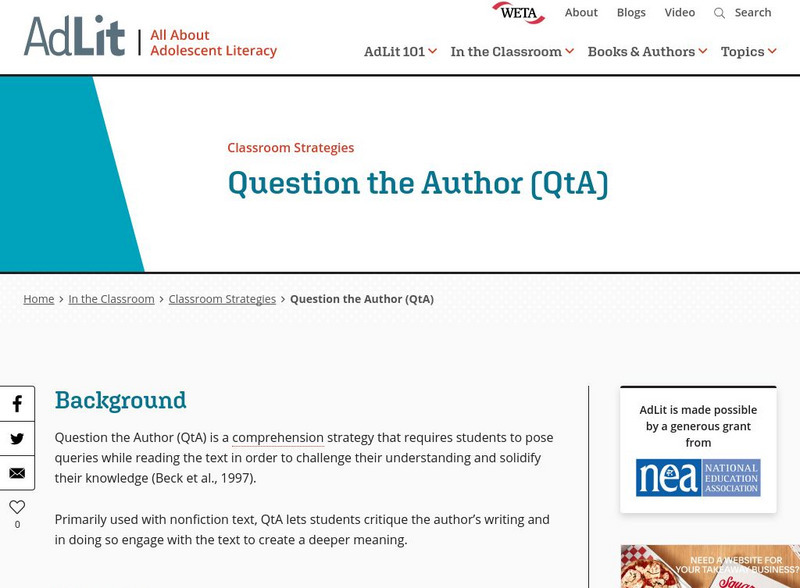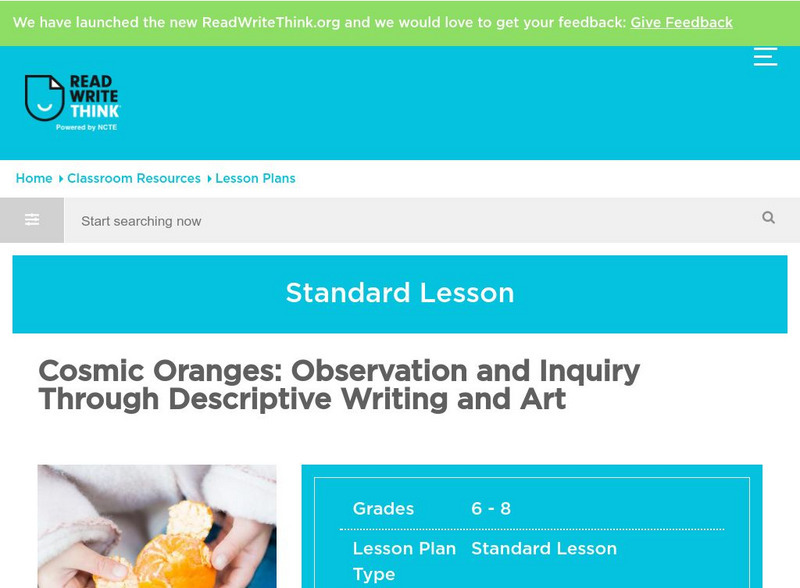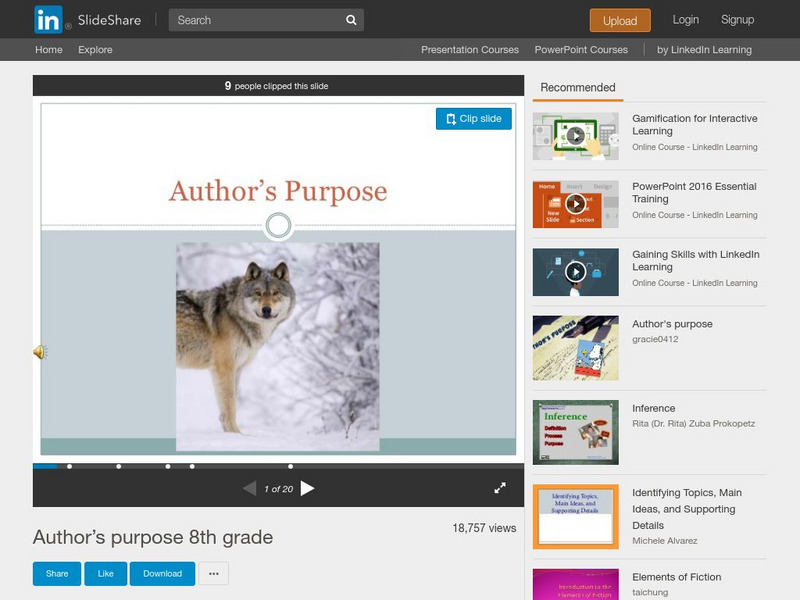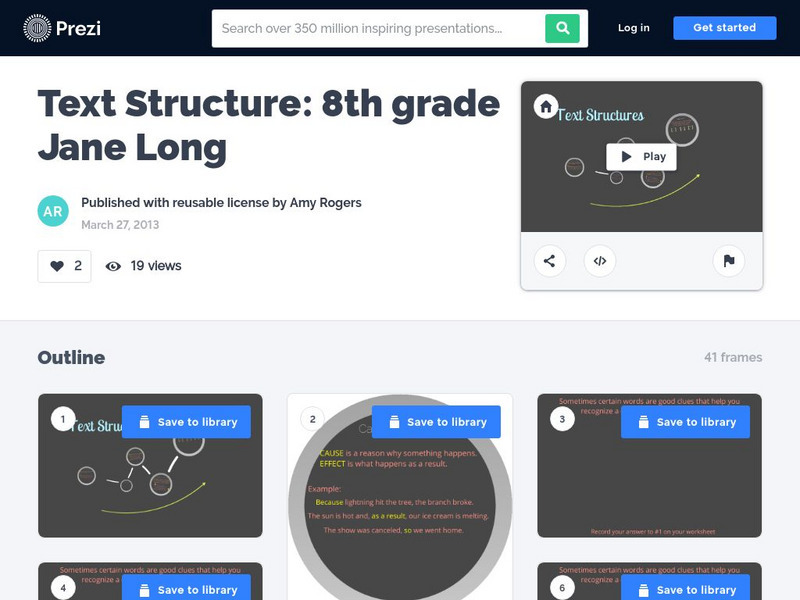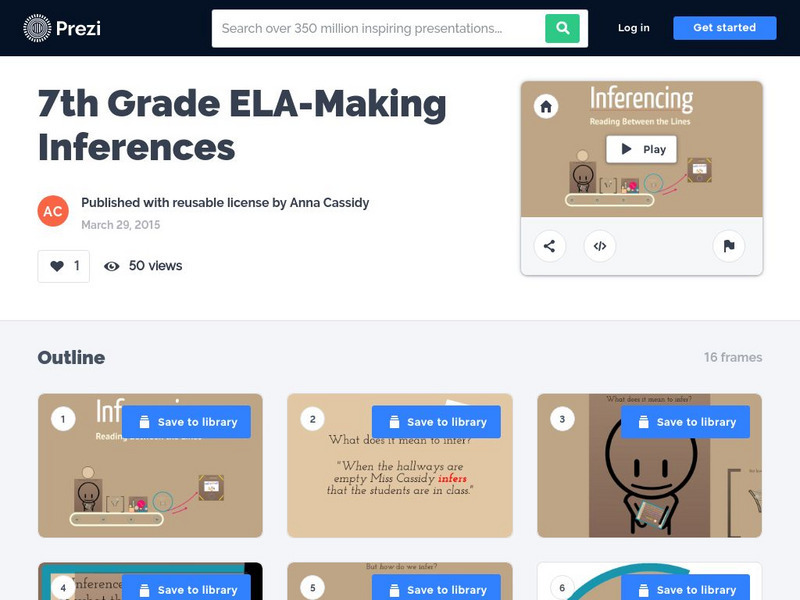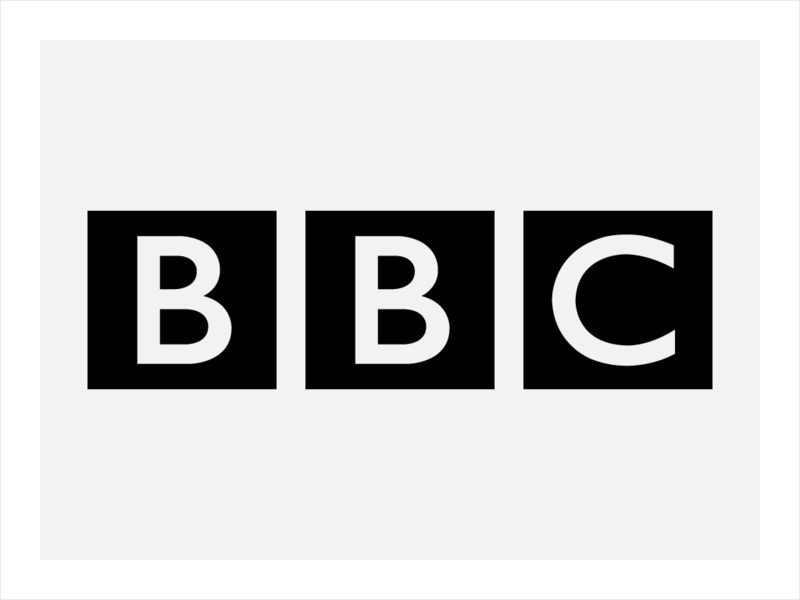Hi, what do you want to do?
Other
****Story Mapping Strategy
This accessible explanation features a learning exercise to help teach students to use story mapping to identify elements of a narrative.
Quizlet
Quizlet: Ccisd 4th Grade Main Idea Test
Reading comprehension terms (nonfiction) are included on this test. This test assesses the following words: topic, main idea, supporting details, summarizing, conclusion, point of view, author's perspective, author's purpose, details,...
Other
Sas: Exploring Ways Authors Use Text Structures to Convey Meaning
In this lesson, learners will explore ways authors use text structures to convey meaning through cause and effect, sequencing, comparison, and more.
Better Lesson
Better Lesson: Sensory Details
Learners will learn how to enhance their narrative writing by incorporating sensory details to convey experiences and events. A power point presentation on sensory details is included.
BBC
Bbc: Skillswise: Types of Texts Fact Sheets
Six printable fact sheets on how to understand and recognize different types of text including descriptive, informative, instructive, and persuasive.
E Reading Worksheets
E Reading Worksheets: Writing Narrative Essays
This article provides the components of narrative writing. The author emphasizes ways to make narrative writing better. W.9-10.3e Conclusion
Reading Rockets
Reading Rockets: Teach Expository Text Structure to Facilitate Comprehension
Expository text can be challenging to young readers because of the unfamiliar concepts and vocabulary it presents. Discover ways to help your students analyze expository text structures and pull apart the text to uncover the main idea...
Alabama Learning Exchange
Alex: Writing to Determine, "What Is a Pulgar?"
This lesson plan is a writing follow-up to the guided reading lesson plan, "What is a Pulgar?" It utilizes a Makes Sense Strategies Think-sheet to guide the writing.
AdLit
Ad lit.org: Classroom Strategies: Selective Highlighting
Selective Highlighting/Underlining is used to help students organize what they have read by selecting what is important. This strategy teaches students to highlight/underline ONLY the key words, phrases, vocabulary, and ideas that are...
AdLit
Ad lit.org: Classroom Strategies: Semantic Feature Analysis
The Semantic Feature Analysis strategy engages students in reading assignments by asking them to relate selected vocabulary to key features of the text. This technique uses a matrix to help students discover how one set of things is...
AdLit
Ad lit.org: Classroom Strategies: Question the Author (Qt A)
Question the Author (QtA) is a comprehension strategy that requires students to pose queries while reading the text in order to challenge their understanding and solidify their knowledge (Beck et al., 1997).
E Reading Worksheets
E Reading Worksheets: Text Structure: Test 3
In this text structure test, students read passages and select the correct text structure; they are sometimes asked to explain how the evidence to prove their selections.
ReadWriteThink
Read Write Think: Cosmic Oranges
Contains plans for four 45-minute lessons that ask young scholars to use their senses and focus their attention while writing descriptively and observing scientifically. In addition to objectives and standards, this instructional plan...
Quia
Quia: Narrative Structure Elements
This reading resource provides vocabulary words with definitions. All words are related to the elements of narratives. A link to associated review activities is included.
Annenberg Foundation
Annenberg Learner: Journey North: Reading Strategies: Summarize Information
Learn what a summary is and how to write an objective summary of an informational text by using a list of guiding questions.
SMART Technologies
Smart: Making Inferences
Inferencing is finding clues and using background knowledge to determine an explanation from facts in a passage or story. It's "reading between the lines" of a story to understand what the author doesn't state.
Science Education Resource Center at Carleton College
Serc: Why Should You Be Scientifically Literate?
In this lesson, students read, discuss, and analyze an article about the importance of scientific literacy, and develop an appreciation of the role science plays in their own lives.
Fun Trivia
Fun Trivia: The Four Types of Writing Trivia Quiz
A fifteen-question quiz in which the reader identifies a type of writing for each situation: argumentation, exposition, narrative, or description. Correct answers are displayed once answers are submitted.
Tom Richey
Slide Share: Author's Purpose 8th Grade
A slideshow with twenty slides with information and examples of four different purposes an author can have for writing a text: to entertain, to persuade, to express, or to inform/explain.
Other
Prezi: Author's Purpose
Slideshow provides an explanation of the author's purpose which is to reflect, inform, persuade, or entertain (RIPE).
Other
Prezi: Nonfiction Text Structures
Slideshow examines the five most common text structures used by authors to organize nonfiction writing.
Other
Prezi: Text Structure
Slideshow explores text structure and delves into cause and effect, compare/contrast, description, problem/solution, and more.
Other
Prezi: 7th Grade Ela Making Inferences
Slideshow explores how to read between the line while offering examples for practicing.
BBC
Bbc Bitesize Revision: Some Purposes of Reading
As part of a review and close reading section of BBC Bitesize, this site presents an overview of various purposes of reading, including a five-bullet point explanation of reading purposes. Click the Next button for more information.






